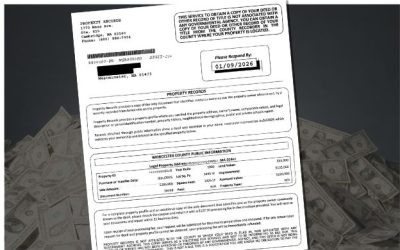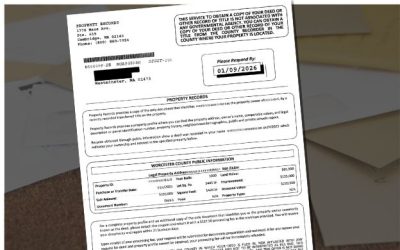Is Big Brother Watching Your Home Sale?
What Buyers and Sellers Should Know About Federal OversightFrom anti-money laundering orders to foreign land purchase scrutiny, here’s how U.S. agencies monitor real estate transactions — and when it matters to you.
If you’re buying or selling a home, you might assume it’s a personal, private transaction — just you, your agent, and the closing attorney. But in certain cases, federal agencies like FinCEN, Homeland Security, and even the FBI are quietly watching the real estate market.
This isn’t a reason to panic, but it is worth understanding. Here’s how — and why — the government may be involved in your next transaction:
Anti-Money Laundering: FinCEN’s Role in Real Estate
The U.S. Treasury’s Financial Crimes Enforcement Network (FinCEN) monitors real estate deals in specific high-risk areas to crack down on money laundering through all-cash home purchases.
- These regulations apply in select cities through Geographic Targeting Orders (GTOs).
- They require title companies to report the beneficial ownership of entities buying real estate in cash over certain thresholds.
- As of 2024, targeted areas include New York, Miami, San Diego, Los Angeles, San Francisco, and Boston.
CFIUS and Foreign Buyers: National Security Meets Real Estate
The Committee on Foreign Investment in the United States (CFIUS) has expanded its oversight to include foreign real estate purchases near sensitive sites, like military bases and ports.
- Under the Foreign Investment Risk Review Modernization Act (FIRRMA), CFIUS can now review real estate deals — even when no company is being acquired.
- In 2023, the Air Force raised national security concerns after a Chinese firm purchased land near a base in North Dakota.
Immigration Status & Mortgage Oversight
Mortgage lenders are required to verify a borrower’s identity and legal status — and that can intersect with immigration records. While not a direct Homeland Security audit, your file could draw attention if:
- False immigration documents are used
- Fraud is suspected on the loan application
- You’re applying for a government-backed loan, like FHA or VA
FBI & IRS Involvement: When Real Estate Becomes a Red Flag
The FBI and IRS-Criminal Investigations (CI) monitor patterns that may suggest:
- Title fraud or forged documents
- “Straw buyer” schemes where someone falsely claims to be the primary buyer
- Real estate used to hide unreported income or launder money
These agencies don’t monitor every deal, but they do act when something doesn’t add up.
What This Means for You
Most buyers and sellers won’t hear from a federal agency during a transaction — but in today’s security-conscious landscape, transparency and legal compliance matter more than ever.
- Selling to a foreign investor? Disclose clearly and understand CFIUS boundaries.
- Buying in cash with a trust or LLC? Expect extra scrutiny in some cities.
- Applying for a mortgage? Make sure your documentation is accurate and legal.
As always, work with a reputable closing attorney and disclose honestly — it’s the best way to keep your deal (and your name) off anyone’s watchlist.
Want to Make Sure Your Deal Is Air-Tight?
Whether you’re buying or selling, we help you cover every angle — from contract review to full closing services. At The Law Office of David R. Rocheford, Jr., P.C., we work to keep your transaction compliant, smooth, and secure from start to finish.
Providing title, escrow, closing and settlement services to clients throughout Massachusetts and New Hampshire
From Our Clients
Recent News
What Real Estate Agents Need to Know About FinCEN’s New Residential Real Estate Reporting Rule (Effective March 1, 2026)
SUMMARY: Starting March 1, 2026, FinCEN’s Residential Real Estate Rule requires a Real Estate Report for certain non-financed residential transfers where the buyer is an entity or trust (common “cash/opaque ownership” scenarios). Real estate agents do not file the...
Why New Homeowners Get Targeted After Closing
For many buyers, one of the most surprising parts of homeownership happens after the closing is complete: the sudden increase in mail related to their property. This isn’t accidental—and it isn’t unique to any one company or offer. It’s the predictable result of how...
New Homeowners Beware: “Recorded Deed” Letters That Aren’t What They Seem
Buying your first home is exciting—and it often comes with a mountain of paperwork. Unfortunately, it can also make you a target for misleading solicitations that appear official and urgent, but offer nothing you actually need.One of the most common examples we see...








